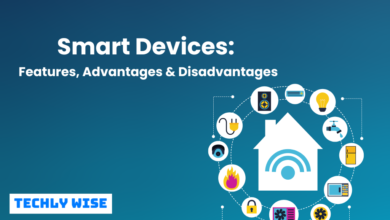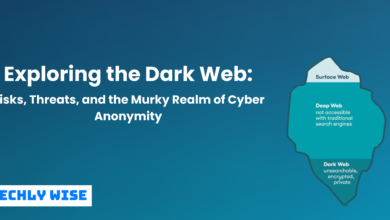
Cybersecurity is the technique of preventing harmful assaults on computers, mobile devices, servers, networks, electronic systems, and data. It is also referred to as information technology security or electronic information security. The phrase, which is used in a variety of contexts, including business and mobile computing, can be divided into a few main categories.
As our reliance on technology grows, so do the risks associated with it. Cyber threats come in various forms, including malware, phishing attacks, ransomware, data breaches, and more. These threats not only jeopardize sensitive information but also pose significant financial, reputational, and operational risks to organizations and individuals alike.
Effective cybersecurity measures involve a multi-faceted approach that combines proactive prevention, detection, response, and recovery strategies. This may include deploying firewalls, antivirus software, encryption techniques, access controls, and intrusion detection systems to protect against unauthorized access and malicious activities.
The Elements Of Cybersecurity
Processes
You or any organization should react in this way to any kind of attack, successful or not. It offers advice on how to spot them, defend yourself from them, bounce back from them, and avoid them completely.
Technology
Technology is your sword and shield when it comes to cyberattacks. It is a step in the procedure. These are some of the different tools you’ll employ to lessen attacks. This may apply to cloud infrastructure, individual devices, or networks. Technology examples include firewalls, intrusion detection and prevention systems (IPS & IDS), antivirus software, and DNS filters.
Users
This one is strongly dependent on the first two elements. Even with the best methods and cutting-edge technology, users can simply self-sabotage and render all of that pointless. Strong and distinctive passwords, keeping them secret, double-checking email addresses, keeping an eye out for suspicious attachments, and routine backups are all fundamental security precautions.
CyberSecurity Types
The combined effects of numerous diverse systems make up every organization’s assets. These systems need to work together to maintain their systems’ strong cybersecurity posture. The following sub-domains can be used to classify cybersecurity:
Network Security
Entails putting in place the technology and software necessary to protect a computer network from illegal access, intrusion, misuse, attacks, and interruption. A business can better safeguard its assets by using this security against both external and internal dangers.
Data or Information Security
To protect data integrity and privacy during both storage and transmission, a reliable data storage system must be put in place.
Application Security
It entails safeguarding the applications and hardware against potential threats. To provide this protection, update the apps periodically to protect them from dangers. Before a program or device is deployed, successful security starts with the design phase, the authoring of source code, threat modeling, validation, etc.
- The majority of the apps we use on our smartphones are secure and adhere to the Google Play Store’s policies.
- There are 1.85 million different apps that may be downloaded by users. This does not imply that all apps are secure just because we have alternatives.
- The app needs to be installed from a reliable source, not Google Chrome.
Mobile Security
It entails protecting against various malicious threats to the corporate and personal data held on mobile devices including, PCs, cell phones, tablets, and other comparable devices. device loss or theft, unauthorized access, viruses, etc. are some of these threats.
- Mobile phones are among the most popular devices we use daily. We use them for everything, including attending online classes and transmitting money and client calls.
- The ease with which we may now access news from foreign countries thanks to mobile phones is astounding.
- We must use the built-in app on our phones to lock any payment applications, and we must never disclose our phone’s password to anyone but our families.
Operating Security
It consists of the procedures and choices made for managing and safeguarding data assets. This covers the rules governing where and how data may be shared, as well as the rights that users have when logging onto a network.
Cloud Security
It entails safeguarding the data kept by the firm in a digital environment or cloud architecture. To maintain security against a variety of threats, it makes use of many cloud service providers like Azure, AWS, Google, etc.
- Over the past ten years, cloud-based data storage has gained popularity as a solution.
- Notable platforms include Microsoft Cloud, Dropbox, Google Drive, etc.
- To a certain extent, these platforms are cost-free if we wish to save more data than we must.
- AWS is another innovative method for managing your organization online and protecting your data.
Internet of Things (IoT) Security
Devices commonly utilize outdated software, making them susceptible to recently discovered security flaws. Manufacturers commonly ship easily crackable passwords on Internet of Things (IoT) equipment (such as home routers), which may have been left there by suppliers and end users.
Disaster Recovery
Business Continuity Plans (BCPs) are regulations that outline what should be done in case of attack and/or data loss. For regular backups and to lessen the impact of assaults on business continuity, this includes setting up off-premise sites.
User Education
A good cybersecurity system is only as strong as its weakest point of entry. Users must be made aware of best practices for cybersecurity, such as two-factor authentication, frequent password changes, and the use of VPNs for remote connections.
CyberSecurity’s Importance
Computers, networks, and other electronic devices, as well as software programs, are now essential to every part of our lives as we live in a digital age. Devices connected to the Internet are a vital component of all key infrastructure, including the healthcare system, banking system, governments, financial institutions, and manufacturing sectors.
Some of their information, such as intellectual property, financial data, and personal data, may be delicate and susceptible to unauthorized access or exposure, which could have undesirable consequences.
In addition, as the number of cyberattacks rises, organizations and businesses, particularly those that handle data about personal or financial records, health records, or national security, must have robust cybersecurity procedures and policies to safeguard their sensitive customer and employee data.
Benefits of CyberSecurity
Cybersecurity has several benefits for businesses, as well as for daily work and personal life. We all gain from these kinds of things:
Data Security From Hackers
Cybersecurity is intended to lessen the likelihood of data breaches by criminals. In addition to firewalls, web servers, and access control procedures, it uses tools and techniques like the DLP approach. Additionally, it limits user access to resources based on their privileges, duties, or network connections.
Availability Of The System And Enhanced Data
A system’s network and data’s effectiveness can increase if it is protected against cyber security risks. Because it is less damaging, it also raises the caliber of data.
Reduces Computer Crashes
The user of technology must contend with a variety of hazardous threats that could cause computer crashes and freezing screens. This could jeopardize the professional lives of those who must meet strict deadlines. Cybersecurity can help to mitigate these issues and lessen the burden of using technology.
Facilitate Remote Work
Strategies, Analytics, and sensitive data that could be leaked or hacked are always protected by cyber security measures. Instead, some businesses or organizations adopt a variety of remote workflow approaches. Yet, it gained popularity following COVID-19, where 80% of workers used their personal or professional gadgets, Wi-Fi, and IoT to work from home. Due to the rise in typical data breach expenses, it is now more important than ever for businesses to safeguard their sensitive data.
Reduced Risk of Data Theft Hazard
The main advantage of cyber security is that it stops hostile or unauthorized users from accessing the system. The high-security technique is used to prevent significant data theft and improve the experience overall.
Preserve The Reputation Of The Company
The main goal of every business is to gain the confidence of its clients, but a data breach can harm this effort and the relationship with clients. Several instances have shown that data breaches have seriously damaged a company’s reputation because, following an assault, they failed to maintain the level of client loyalty required to strengthen brand loyalty. To prevent these unexpected system failures and increase security, organizations use technologies like network security and cloud security, which can also offer up new avenues for ventures, suggestions, and expansions in the future.
Maintains Profitability
The main threat to any company or person that can instantly take everything from bed to floor, including revenue and sales, is cybercrime. Low, aggressive standards will prevent a corporation from sustaining itself. As a result, some established technologies in cyber security protect enterprises from hitting their bottom line.
Disadvantages
May Be Difficult
Due to their complexity and time commitment, cyber security measures are difficult for users, regular people, and business people to understand. Instead of benefiting, what if the consumer requires assistance knowing how to use cyber security? In that instance, data loss could result, or hackers could readily exploit it. If a company lacks an adequate security system, hackers can easily trap and attack it using a variety of techniques. To prevent harm, cyber security specialists must deconstruct the intricacy of getting past cyber security.
Expensive For All People
Users or companies must purchase their services and pay for maintenance, which they perceive as a cost. Small and medium-sized businesses typically require greater resources to safeguard their systems and data against internal and external cyber-attacks. Companies need to be aware of the benefits of employing cyber security in their operations and spend less on it. Even an individual who uses a computer and the internet cannot afford and does not feel the need for an antivirus or firewall for their machine. Some free antivirus programs including Windows Defender come with Windows that aid in prevention, but nothing is completely secure.
Constant Monitoring Is Required
As we all know, hackers and other online criminals are constantly trying to access a company network. Businesses must continuously examine their cyber security to combat them. It has two advantages. One benefit is that it maintains the system currently, identifying dangers before they cause harm and making sure everything is in place.
May Be Dangerous
The need to jeopardize data makes installing cyber security measures occasionally risky for people or enterprises. However, it raises the possibility of security lapses that cost the business money, clients’ trust, and its good name.
Slow The System Down
One of the best and most committed security programs scans all of the system files and uses several passwords. This can take a long time, slowing down the system’s performance and the productivity of the person doing it.
The Firewall Is Incorrectly Configured On The System
A firewall is a fantastic tool for cyber security, and when set up properly, it can prevent users from accessing particular services or taking certain activities.




